Email automation is a powerful tool for small businesses to connect with their audience, build relationships, and drive conversions.
However, with the plethora of email marketing tools available in the market, it can be overwhelming to choose the right one for your business.
Hence, we’ve put together this comprehensive guide to highlight some of the top email automation tools for small businesses, along with their features, pricing, and pros and cons.
But before let’s see what factors you need to consider when diving into email automation for small businesses.
Factors to consider while choosing an email marketing tool:
As a small business owner, you know that you have different needs compared to mid-sized and large organizations when it comes to email marketing. Those big fancy tools with advanced features may not be necessary for you right now.
So, why pay for features that are not relevant to your current marketing strategies? Instead, you should focus on finding tools that are tailored to your small business’s needs.
Here are some factors that you should consider while looking for an email marketing tool:
Ease of Use:
Small businesses typically have limited time and resources, so it’s essential to choose an email marketing tool that is easy to use and doesn’t require extensive technical expertise. Look for tools with user-friendly interfaces, intuitive workflows, and simple setup processes.
Pricing:
Small businesses should choose a tool that fits within their budget and provides a good return on investment (ROI) based on their marketing goals.
Thus, make sure to consider the cost of the email marketing tool, including monthly or annual subscription fees, and any additional charges for features or sending volume.
Features:
While small businesses may not need all the advanced features that larger organizations require, it’s still important to evaluate the features offered by an email marketing tool and ensure they align with your specific needs. Common features to consider include:
- Email templates: You may not have a dedicated copywriter for writing engaging email copies. Hence, make sure that the tool already has some pre-built templates to ease your task.
- Automation: Though your sending volume may be low, manually sending emails can be a time-consuming and tedious task. As a small business, you need to dedicate time to other important tasks. Hence make sure to select a tool that allows you to automate your emails easily.
- Integrations with other tools or platforms: Consider how well the email marketing tool integrates with other tools or platforms that you use for your business. Integration can streamline your marketing efforts and improve efficiency.
- Deliverability: Email deliverability is crucial for the success of email marketing campaigns. Hence, look for an email marketing tool that allows you to improve your deliverability rate and help you get your emails into the recipient’s inbox.
Scalability:
While small businesses may not have high sending volumes initially, it’s important to consider the scalability of an email marketing tool for future growth.
Choose a tool that can accommodate your business’s future needs in terms of subscriber lists, sending volume, and advanced features.
Support and Customer Service:
Though the tool is simple and easy to use, you may still face some technical difficulties. Hence, it is essential to check that you have access to their support team 24/7.
Email Automation tools for small businesses:
Whether you’re looking for a newsletter tool, cold email automation for small business, drip email sequences, or transactional email delivery, we’ve got you covered.
Here are some popular email marketing tools for small businesses, along with their features, pros and cons, and pricing. Explore the following tools and choose the best fit for your small business.
Newsletters:
1. Mailchimp:
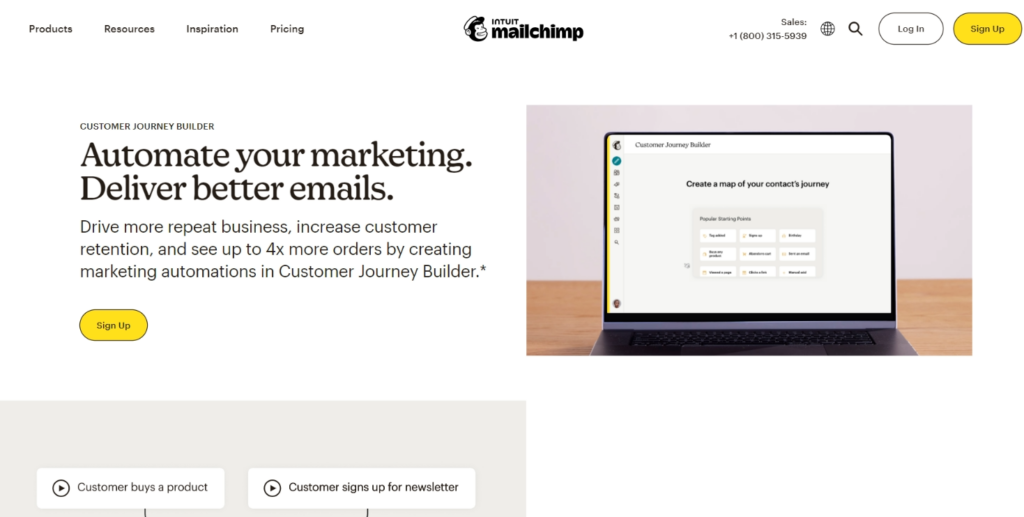
Mailchimp is a popular email marketing tool that offers easy-to-use templates, list management, automation, and reporting features.
Features:
- Email templates with customization options
- List management and segmentation
- Automation workflows
- Reporting and analytics
- Integrations with other tools and platforms
Pros:
- Easy-to-use interface and template editor
- Robust automation features
- Integration with popular e-commerce platforms
- Good deliverability rates
Cons:
- Limited features on the free plan
- Pricing can be higher compared to other options
- Some users may find the interface overwhelming for beginners
Pricing: Mailchimp offers a free plan with limited features, as well as paid plans starting at $9.99/month for more advanced features and higher sending volumes.
2. Sendinblue:
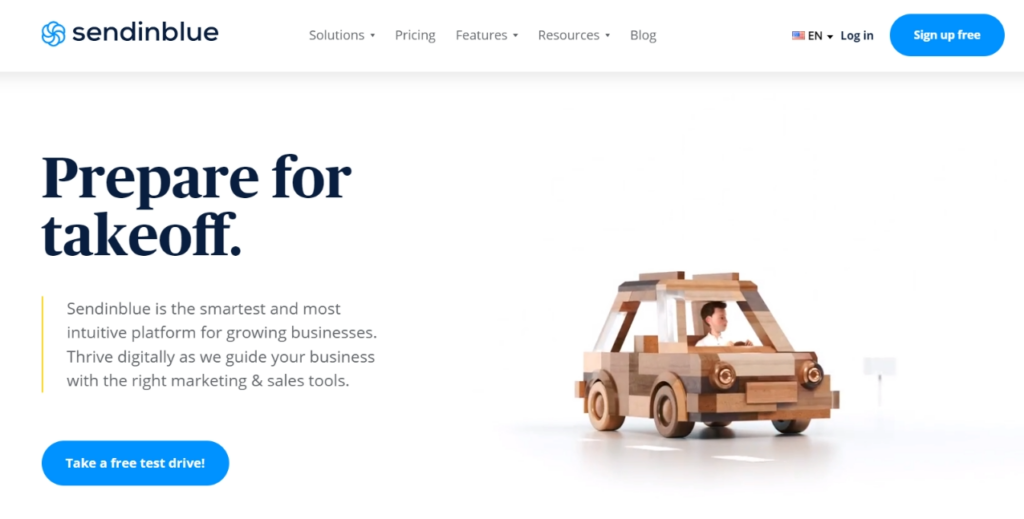
Sendinblue is a comprehensive email automation for small business that includes email templates, automation, SMS marketing, and CRM integration.
Features:
- Email templates with customization options
- List management and segmentation
- Automation workflows
- SMS marketing
- CRM integration
Pros:
- All-in-one marketing platform with email, SMS, and CRM features
- Easy-to-use interface with drag-and-drop email builder
- Good deliverability rates
- Affordable pricing for small businesses
Cons:
- Limited features on the free plan
- Some users may find the automation features complex
Pricing: Sendinblue offers a free plan with limited features, as well as paid plans starting at $25/month for more advanced features and higher sending volumes.
3. Campaign Monitor:

Campaign Monitor is a user-friendly email marketing tool that offers customizable templates, list management, and automation features.
Features:
- Customizable email templates
- List management and segmentation
- Automation workflows
- Reporting and analytics
- Integrations with other tools and platforms
Pros:
- User-friendly interface with a drag-and-drop email builder
- Robust automation features
- Good deliverability rates
- Affordable pricing for small businesses
Cons:
- Limited features compared to other options
- Some users may find the reporting and analytics features limited
Pricing: Campaign Monitor offers pricing based on the number of subscribers, with plans starting at $9/month for up to 500 subscribers.
Cold email automation:
SafeMailer
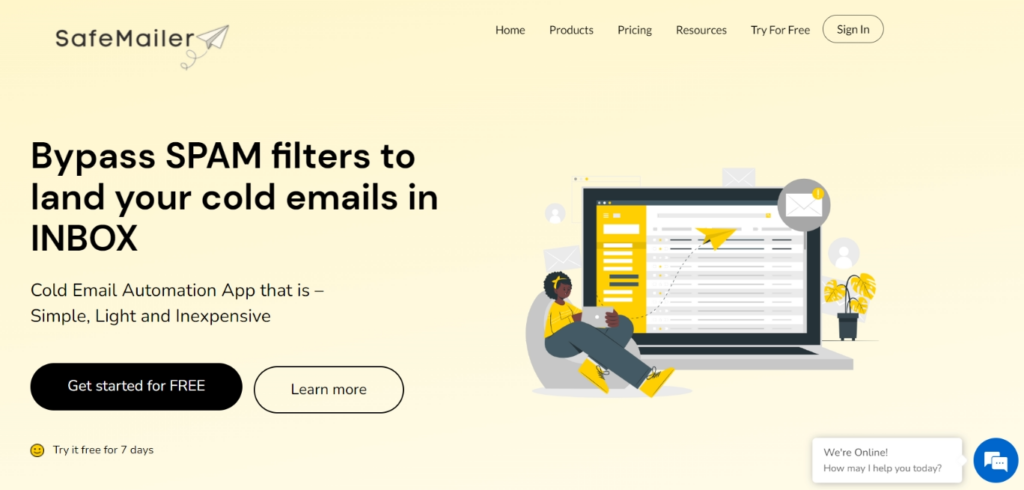
SafeMailer is a highly customizable cold email automation tool best suited for small businesses. Moreover, it is easy to access and allows you to have your own dashboard customized as per your needs.
Features:
- Personalization options enable you to personalize your cold emails with recipient-specific information, such as names, company names, and more.
- Provide real-time email tracking and analytics, allowing you to monitor the performance of your cold email campaigns and make data-driven decisions to optimize your outreach strategies.
- Email templates with customization options that you can customize with your own branding, images, and content, making it easy to create professional-looking emails.
Pros:
- SafeMailer is a cost-effective option for small businesses on a budget, allowing you to automate your cold email campaigns without incurring additional expenses.
- It allows you to monitor the performance of your cold email campaigns, providing insights on various key metrics to help you optimize your strategies.
- You can easily create professional-looking emails, even if you’re not a design expert, helping you enhance the visual appeal of your emails with SafeMailer’s customizable email templates.
- It is a highly customizable platform. You can create your own dashboard as per your needs and requirements.
Cons:
- SafeMailer only supports Gmail presently.
Pricing: SafeMailer offers a free plan for cold email marketing software, indicating that it does not require any payment for usage. You can send up to 500 emails per month for free but the paid starter plan starts at $15.
Reply.io:
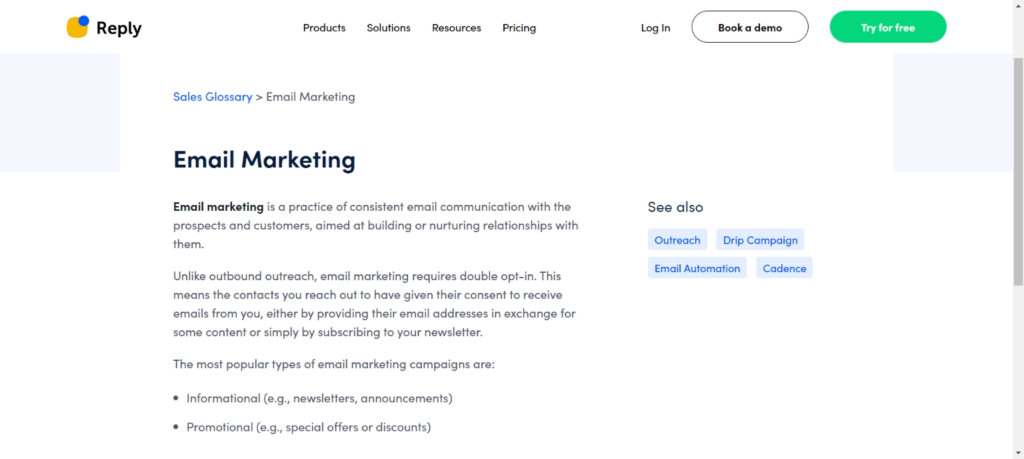
Reply.io is a powerful tool for automating cold email outreach campaigns, including features such as email sequencing, personalization, and tracking.
Features:
- Cold email automation with email sequencing
- Personalization options
- Email tracking and analytics
- CRM integration
Pros:
- Powerful cold email automation features
- Personalization options for targeted outreach
- Detailed email tracking and analytics
- Integration with popular CRM platforms
Cons:
- May have a steeper learning curve for beginners
- Higher pricing compared to other options
Pricing: Reply.io offers plans starting at $70/month for up to 1,000 recipients, with higher-tier plans for larger volumes and more features.
Lemlist:
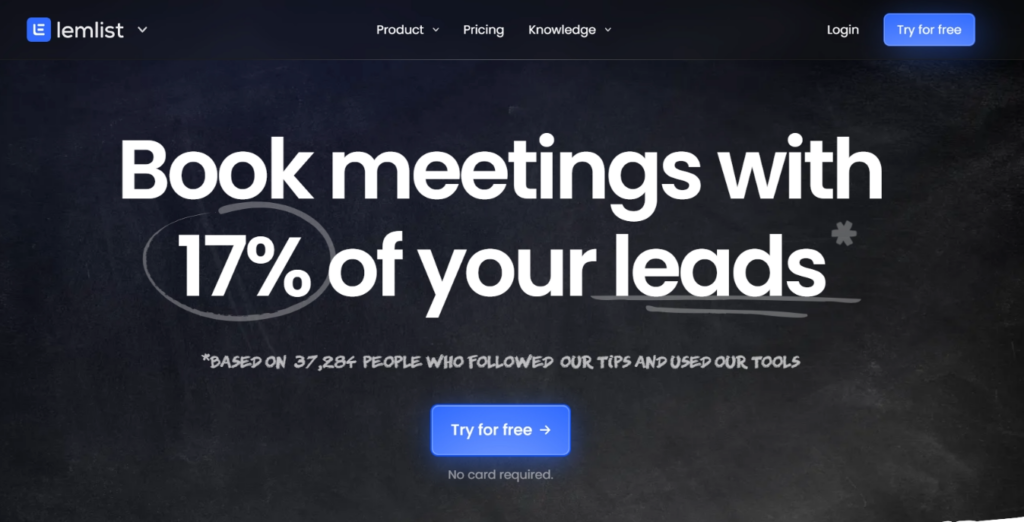
A tool that helps you automate personalized outreach emails, follow-ups, and reminders, with features like email tracking and analytics.
Features:
- Personalized cold email automation with email sequencing
- Advanced personalization options
- Integration with popular CRM platforms
- Campaign analytics and tracking
Pros:
- Powerful cold email automation features with advanced personalization options
- Integration with popular CRM platforms for seamless outreach
- Detailed campaign analytics and tracking
Cons:
- May have a steeper learning curve for beginners
- Higher pricing compared to other options
Pricing: Lemlist offers plans starting at $29/month for up to 500 recipients, with higher-tier plans for larger volumes and more features.
Drip email sequences:
SafeMailer:
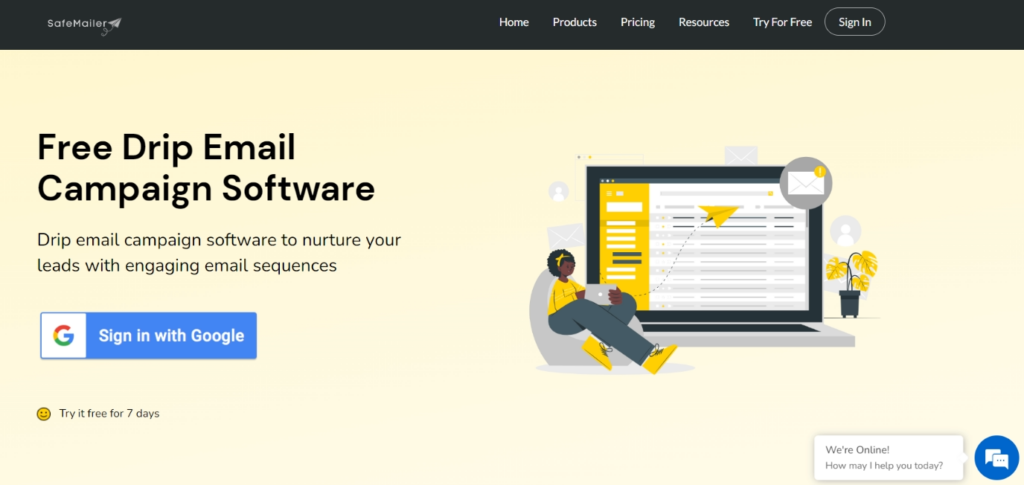
SafeMailer is a highly effective drip email automation software that allows you to create, customize, and improvise your campaign with efficiency.
Features:
- Spreadsheet integration
- Detailed analytics:
- Automation workflows
- Customizable email templates
Pros:
- It is cost effective
- You can highly customize your workflows to meet your business goals.
- Spreadsheet integration allows you to incredibly personalize your emails.
- Helps you improve your performance with efficiency by providing detailed analytics.
Cons:
- You cannot send newsletter sequences with SafeMailer
- It requires Google Drive integration.
Pricing: SafeMailer offers a free plan for up to 100 recipients per month. While the paid plan starts from $9 dollar per month.
Drip:
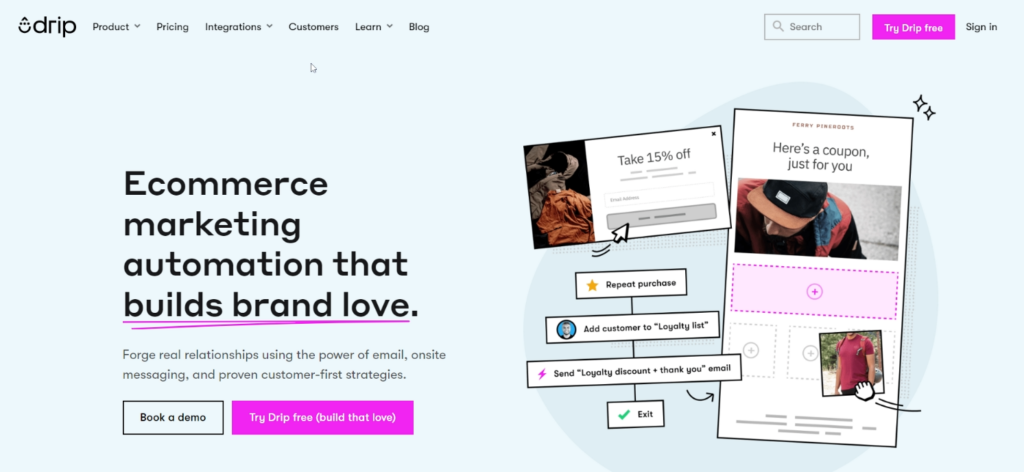
Drip is a marketing automation tool that allows you to create and automate personalized drip email campaigns, segment your audience, and track campaign performance.
Features:
- Email templates with customization options
- List management and segmentation
- Automation workflows
- Reporting and analytics
- E-commerce integration
Pros:
- Focus on e-commerce integration for online businesses
- Robust automation features
- Detailed reporting and analytics
- User-friendly interface with a visual automation builder
Cons:
- Pricing may be higher compared to other options
- Limited features on lower-tier plans
Pricing: Drip offers plans starting at $19/month for up to 500 subscribers, with higher-tier plans for larger volumes and more features.
ConvertKit:
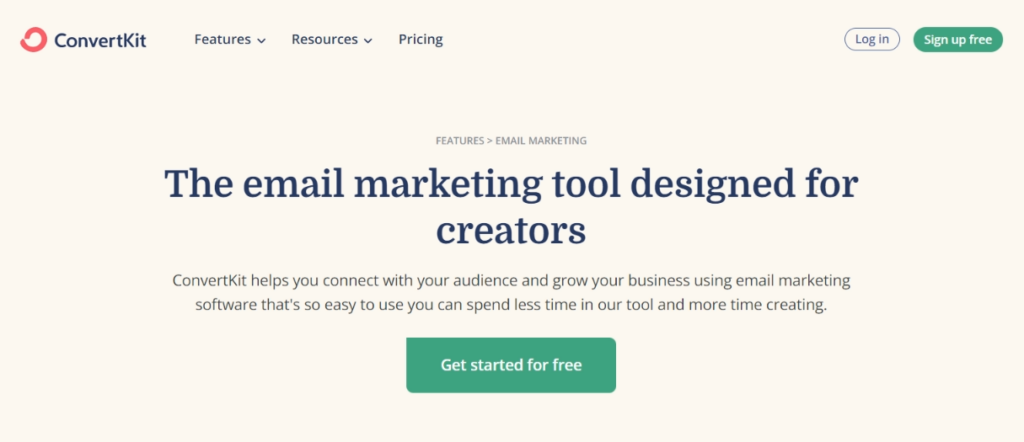
ConvertKit is a popular email marketing tool for creators and bloggers, with features for building automated email sequences, segmenting subscribers, and tracking performance.
Features:
- Cold email automation with email sequencing
- Personalization options
- CRM integration
- Email tracking and analytics
Pros:
- Powerful cold email automation features with personalization options
- Integration with popular CRM platforms for streamlined outreach
- Detailed email tracking and analytics
Cons:
- May have a steeper learning curve for beginners
- Higher pricing compared to other options
Pricing: CoverKit offers plans starting at $49/month for up to 2,000 recipients, with higher-tier plans for larger volumes and more features.
Transactional emails:
SendGrid:
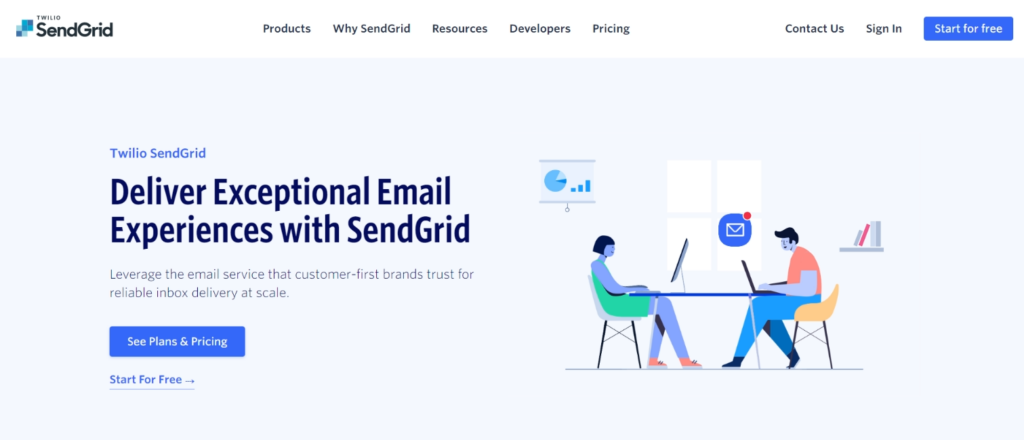
SendGrid is a cloud-based email delivery platform that allows you to send transactional emails, such as order confirmations, password resets, and notifications, with high deliverability rates.
Features:
- Transactional email delivery
- Bounce handling and email tracking
- API integration for developers
- Detailed analytics and reporting
Pros:
- High deliverability rates for transactional emails
- Detailed analytics and reporting
- API integration for custom email sending
Cons:
- Limited features on the free plan
- Focuses primarily on transactional emails, and may not have advanced marketing automation features
Pricing: SendGrid offers a free plan with limited features, as well as paid plans starting at $14.95/month for more advanced features and higher sending volumes.
Postmark:
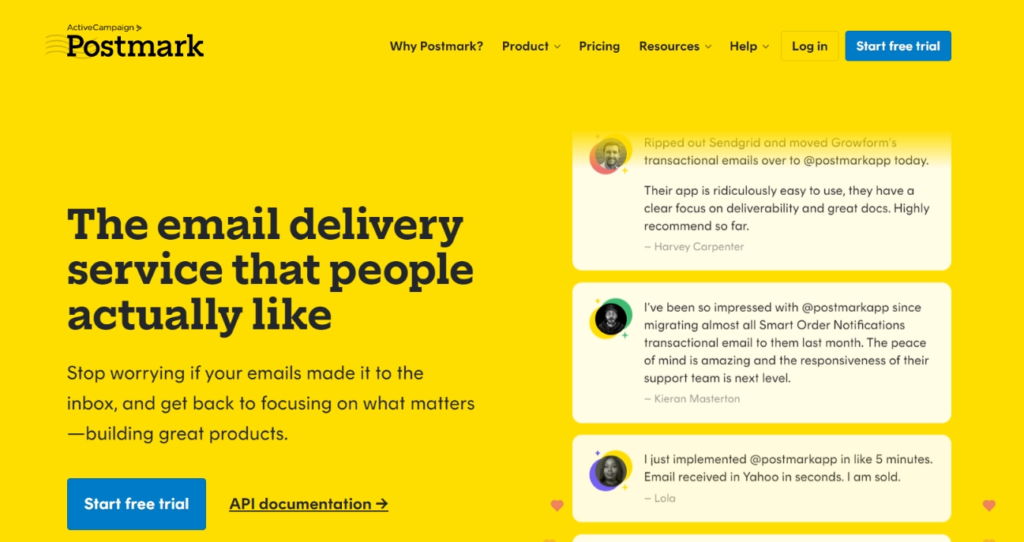
Postmark is an email service provider that specializes in transactional emails, with features such as real-time notifications, detailed analytics, and bounce handling.
Features:
- Transactional email delivery
- Email templates with customization options
- Bounce and spam handling
- Real-time tracking and analytics
Pros:
- Specializes in transactional email delivery for reliable email sending
- Robust bounce and spam handling features
- Real-time tracking and analytics for email performance monitoring
Cons:
- Limited features compared to other options for marketing emails
- May not be suitable for businesses primarily focused on marketing campaigns
Pricing: Postmark offers plans starting at $10/month for up to 10,000 emails, with higher-tier plans for larger volumes and more features.
Conclusion:
Email automation is a boon for small businesses. However, small businesses should be strategic and smart when it comes to choosing email marketing tools.
Hence, they should prioritize their unique requirements, and look for affordability, simplicity, customization options, and good customer support.
By doing so, they can make a wise investment that aligns with their budget and current needs, and ultimately drive successful email marketing campaigns.

Leave a Reply